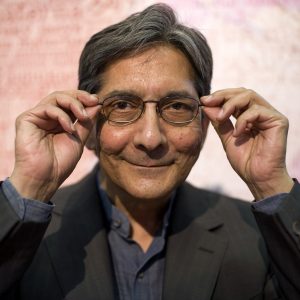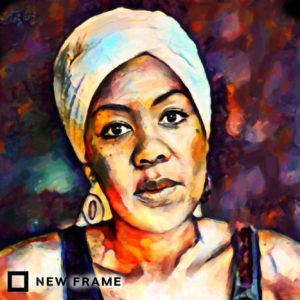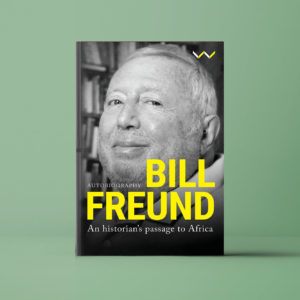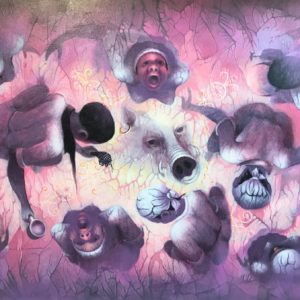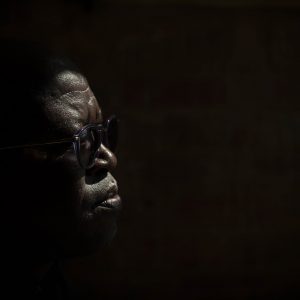Niq Mhlongo and the return of the short story
The novelist and editor capitalises on South Africa’s genius for short fiction in his new collection, which considers how we are haunted by the ghosts of our past.
Author:
10 November 2021
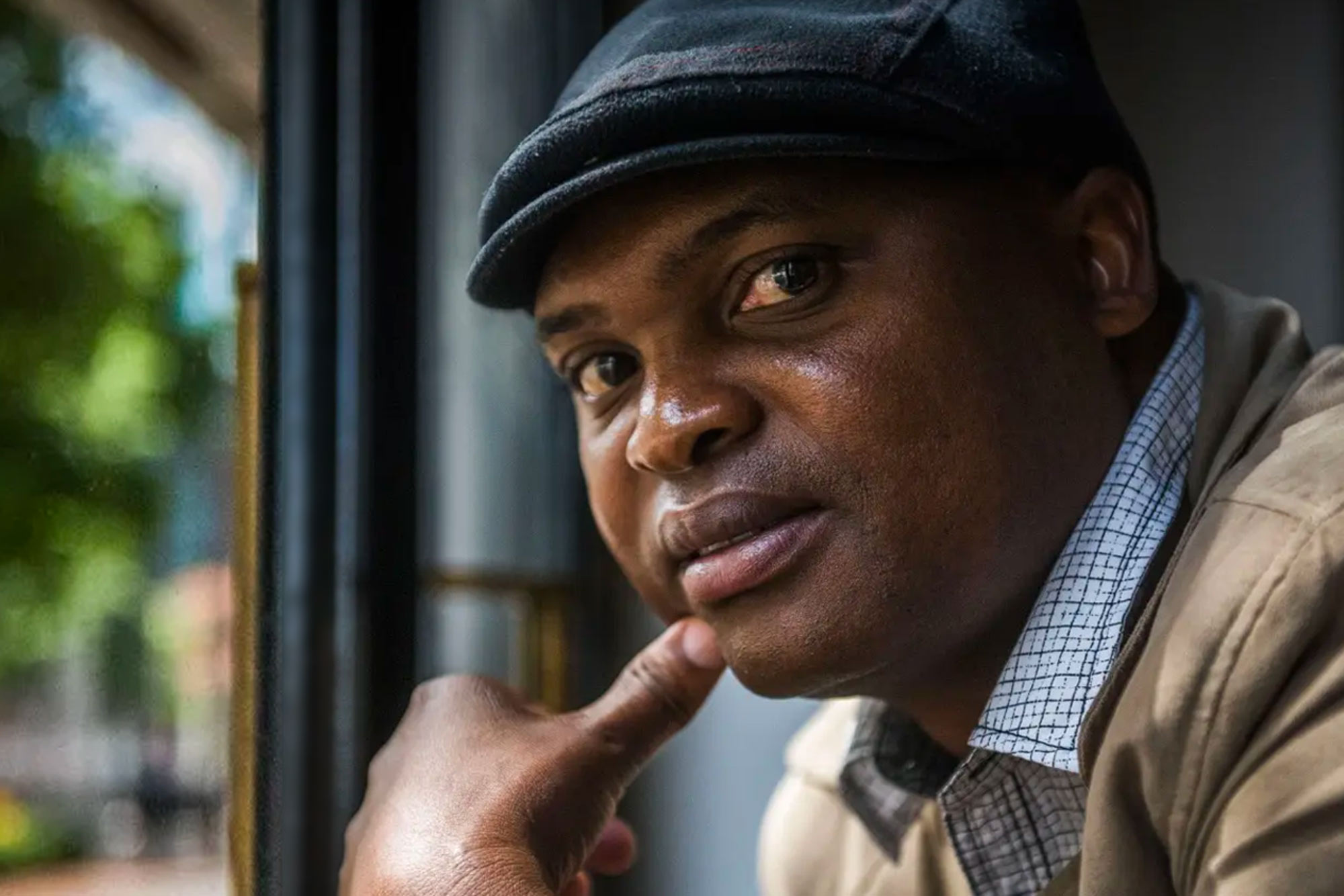
This interview has been lightly edited and condensed for clarity.
Niq Mhlongo has many modes. The South African novelist is a former film classification specialist, travel and short-story writer, literary entrepreneur, festival curator, and creative writing instructor. The multi-hyphenate has made significant headway in writing the brutality, hopes and cynicism of the postapartheid state.
His fiction is imbued with the charms and poisons that define the freedom and democracy experiment within and outside South African borders, broadly tackling themes of continental concern while zooming into the country’s past and present.
Mhlongo’s prose is deceptively simple in its use of language and technical tools, from plot to characterisation and metaphor. His collection of short stories, Soweto Under the Apricot Tree (2018), won the Herman Charles Bosman Literary Prize for English fiction and the Nadine Gordimer Short Story Award in 2019, while his edited collections Black Tax (2019) and the award-winning Joburg Noir (2020) signalled the way for new South African writing.
Related article:
Mhlongo’s fiction is raw without being gratuitous in its exploration of violence and hardship. It is unpretentious and pin-point accurate in its presentation of predominantly Black and African social and cultural themes – including spirituality, rituals and mythology – as well as in its carefully crafted nuances, which involve township scenes and various linguistic registers.
The popularity, importance and magnetic pull of Mhlongo’s output lies in the expansive scope of his themes and in his resonant, dramatic characters: uncles, train and taxi drivers, politicians, pompous tycoons inhibiting a fragile middle class, vulnerable students, traditional and culture custodian elders caught in the contradictions and shifts of modernity, and migrants who often find themselves in the crossfire of South Africa’s embryonic and often lethargic nationalism.
Beyond Mhlongo’s technical capabilities as a writer is an underlying and sophisticated exploration of the psychosis and ideological pressure points of a nation emerging from the clutches of a totalitarian regime and at the crossroads of a fragile social transformation project.
Now, he has published Hauntings (2021), a new collection of short stories by Southern African writers that riffs on the title’s theme.
Nthikeng Mohlele: You are known and solidly established as a novelist and short-story writer, but you have recently ventured into editing non-fiction essays and fiction short stories. Why this transition?
Niq Mhlongo: Ever since I became a published author in 2004, I have been receiving both solicited and unsolicited manuscripts from people who found it difficult to crack into the world of writing. This made me realise how many beautiful stories are sitting out there unpublished or waiting to be written.
It is a fact that the South African publishing industry is a cruel animal. It often misreads the reading market and overlooks some beautiful stories in favour of one particular genre they believe would sell internationally. In that way, our stories are often not given a platform because of the misconception of the market. I looked into my own journey as a writer and realised that it was too bumpy.
When I finally got the platform to be an editor, I already knew what I wanted to do. I wanted to give some of those stories an audience. That was my initial aim. I also wanted to broaden my horizons in the literary landscape. As writers, we learn every day. Editing, for me, is also part of my learning experience. From it I’m hoping to be a better writer.
Related podcast:
Mohlele: How do you choose and balance subject matter when editing a collection of short stories other than your own?
Mhlongo: When editing other people’s stories I rely on the themes from the brief. The story has to address that theme and follow the brief, otherwise it is out. Then I can look at other tick-boxes such as character believability, traditional structures, point of view, dramatic issues, and so forth. For example, I had initially selected about 41 authors for the Joburg Noir collection. For Hauntings, it was 37. Some stories didn’t make it to the final selection because they were either not ready or did not follow the brief.
Mohlele: Please comment on the impact your book Black Tax has had on the South African public debate or imagination or both.
Mhlongo: I think that the most obvious impact of Black Tax in the South African public debate is that the book got us talking about ourselves – all the forms of spending and investments we make as Black people. Through it, we interrogated ourselves, compared notes and made the right financial, cultural and social decisions. It engaged us, made us proud, sad and angry at the same time when we started talking about our families and how much we depend on each other.
Mohlele: How different is the selection of writers you worked with in Joburg Noir and Hauntings?
Mhlongo: I consult a lot before selecting writers. I read their books and follow them on social media. Some of these writers are my favourites. In each one of the three anthologies, there are two or three writers that were not in the mainstream publishing or relatively unknown. That is important for me, to have diverse stories.
Mohlele: How important are social history, culture and mythmaking in Hauntings, and can you comment on what audience these stories are geared at?
Mhlongo: Social history and myth in making played a major role across the stories. Take the story of Chris Mlalazi, for example, which borrows from the sociopolitical epoch in Zimbabwean history of the Gukurahundi. Zanele Dlamini’s story also draws from the incident of the sugar cane serial killer. This shows how we are always haunted by the ghosts of our past as human beings. Our intended audience is everyone who has a taste for a good story. All these stories carry with them political, social and cultural lessons.
Related article:
Mohlele: Do you think there are connections between Mhlongo the creative writing teacher and the editor of commissioned fiction? How do you keep your own voice at bay when working with the work of others?
Mhlongo: There is definitely a connection. My role in editing is more of a development editor – that is where my strength is. I make sure when writers get a brief from me that the stories they write address that particular theme. But I make sure that I only play an advisory role, more like a consultative role, if you like.
Obviously, the people I work with are storytellers. I only work with people who are dedicated to creating their work. These are open-minded people who are aware that every writer needs an editor, no matter how experienced they are – our strengths and weaknesses are different as writers. My role as a development editor is to help identify those, and to make a story interesting to read and ensure we follow the theme. I must give writers as much freedom as possible without interfering with their story. Then I can only recommend possibilities and make suggestions.
Mohlele: What are your views on the short-story scene in South Africa in contrast to short-story engagement in established literary markets or big capitals of the world?
Mhlongo: I can safely say that South Africa is one of the leading countries when it comes to short stories. Almost every year we witness South African authors shortlisted for the Caine Prize, which is the leading short-story prize on the continent at the moment. We have authors who have won this prestigious prize in the past. Jacana Media has for years partnered with the Caine Prize to publish the selected stories for the prize in its anthologies.
In South Africa, we publish short-story anthologies and collections every year. Who would have thought that mainstream publishers like Kwela would venture into short-story publishing? But today short stories as a genre have that deserved recognition, even in literary prizes. They are adapted into theatre plays, radio plays, TV, animation and films. This in itself shows a change in the literary landscape.
In Germany, where I am at the moment, short stories are not yet popular. But they are making inroads into book stores such as the Interkontinental in Berlin. I don’t know about other countries, but I’m happy that South Africa is becoming a trendsetter in reviving the love and production of excellent short stories. I’m proud to be part of that literary revolution.
Related article:
Mohlele: Who do you consider to be a literary influence on you as a short-story writer and editor, and why?
Mhlongo: As a young man I read a lot of South African stories from Staffrider, Drum magazine, Prof Njabulo Ndebele, Prof Zakes Mda, Prof Mbulelo Mzamane, Prof Es’kia Mphahlele and so forth. I would single out Ntate Mothobi Mutloatse as the person who influenced me to edit short stories because he used to edit my beloved Staffrider anthologies.
As an author, I was influenced by so many writers, especially the African Writers Series, which I read religiously.
Mohlele: How is the creative environment of novels different from that of short stories? Do you think there is adequate or compelling literary criticism of short fiction in South Africa?
Mhlongo: In my opinion the postapartheid crop of writers are the ones at the moment who are carrying the burden of reviving the short story as an important genre. That baton was passed to us by the Drum generation. I stand to be corrected here, but I think the focus of the literary criticism of short fiction in South Africa is more on the Drum era, and understandably so. This was the era when short stories were popular and had a bigger platform. The postapartheid writers are bringing the short stories back. With time, compelling literary criticism in this genre will come to the level we will all be satisfied with.
Mohlele: What was the intent behind choosing “hauntings” as a thematic narrative anchor for your forthcoming short story collection?
Mhlongo: “Hauntings” was actually an idea that was successfully sold to me by Maggie [Davey] and Bridget [Impey] at Jacana immediately after the success of Joburg Noir. I loved the idea because I felt the theme talked to me directly. I grew up believing in ghosts and haunting stories that were told at my home. Some of these stories are based on folklore. I felt it was my duty to share these stories with the readers.
I love all 19 stories in the collection. Each one of them is different in terms of setting and plot. Somehow they are like my own children. I cannot decide which one I love more than the other because it would feel like I’m betraying the rest.
Related article:
Mohlele: You have produced novels, short stories, essays and worked on theatrical adaptations. Do you have any plans to venture into editing a poetry collection some day?
Mhlongo: Let me just say that I’m a failed poet. I always admire and envy poets. The way they paint the world with few words and imagery is what I had been attempting to do with little success until I became a prose writer. I wish I had a gift to write poetry. If I can master that, then I can talk about editing poetry in the not-so-distant future.

